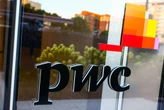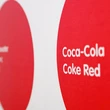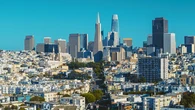For years, global stars have traveled to West Africa as ambassadors of humanitarian and anti-corruption efforts: Rihanna in Senegal urging world leaders to donate aid, Bono in Ghana championing transparency as “the best vaccine against corruption.”
All the while, Vincent Bolloré, the billionaire power broker who wields significant influence over the parent company behind their music labels, was busy building an industrial empire in those same countries.
That empire is now at the center of corruption trials, sexual abuse allegations, and a sweeping criminal complaint filed by West African nonprofits.
“Vincent Bolloré stole money from our communities and used it to build an empire,” Jean-Jacques Lumumba, the head of the anti-corruption watchdog group Restitution for Africa, alleges in a statement to Fast Company.
For some UMG musicians, the accusations against Bolloré present a jarring contradiction: Artists are using their platforms to fight injustice, while a powerful figure profiting from their music built his fortune through actions that critics say undermined democracy.
The Bolloré family’s industrial empire traces back over two centuries to its origins in cigarette and Bible paper manufacturing. Over time, its global success allowed the family to pivot into West African industries like rubber, palm oil, and port operations. More recently, the family gained what French courts described in April as “effective control” of the media conglomerate Vivendi. Until 2021, Vivendi owned all of Universal Music Group (UMG), the world’s leading music company, and Bolloré’s fortunes were widely seen as tied to it. In 2021, Vivendi spun off UMG as a publicly traded company, unlocking $53 billion of value on its first day of trading, while allowing the Bolloré family to retain their position as UMG’s largest shareholders.
Worldwide, UMG manages five million titles across some of the industry’s most iconic labels: Interscope, Capitol, Def Jam, Island, Republic, Virgin. Technically the Bollorés control just 28% of UMG—10% directly and another 18% through Vivendi. But that gives the Bollorés outsized sway. (Kanye West once claimed he was going to bypass label execs with contract complaints and take his grievances straight to the top: “Don’t need the Arnaud meeting anymore,” he tweeted in 2020, referring to Vivendi’s CEO Arnaud de Puyfontaine. “I will be meeting with Vincent Bolloré.”)
This complex web of corporate control casts a long shadow, even as UMG artists champion causes in regions where Bolloré’s other ventures have come under fire. In 2022, Usher and SZA, whose songs include UMG distribution deals, went to Ghana to headline the Global Citizen Festival benefiting West Africa. That same year, fellow UMG client The Weeknd also launched a UN humanitarian fund benefiting the same region.
But those actions coincided with a wave of divestment from Bolloré’s businesses on the part of European investment funds: Switzerland’s largest pension funds put his companies on their exclusion list, and Norway’s $1.7 trillion sovereign wealth fund—the world’s largest—pulled out entirely, citing human rights reports alleging abuses in Liberia, Cameroon, and Sierra Leone, including land grabs and rape.
That financial pressure mirrored growing legal scrutiny. Over the past decade, Bolloré has faced a series of corruption investigations in France tied to his business dealings in West Africa—ranging from election meddling to bribery and port monopolies. He was indicted in 2018, and French prosecutors continue to pursue charges related to those allegations.
Critics of Bolloré contend that artists who remain silent risk inadvertently reinforcing the same exploitative systems many of them seek to challenge.
“Dirty money off the backs of African communities”
Last month, the French National Financial Prosecutor’s Office said it was still working on Bolloré’s corruption trial related to the Togo bribery claims. This came days after Bloomberg News ran a 4,000-word investigation into the sexual coercion of women working on Bolloré’s Liberian rubber plantations. Workers recently set fire to the office and manager’s home to protest the squalid conditions.
Now, a coalition of 11 West African nonprofits known as Restitution for Africa (RAF) has filed a brand-new complaint with French authorities accusing Bolloré of using “corruption, favoritism, and influence peddling” to win port contracts in three additional countries: Ghana, Cameroon, Côte d’Ivoire.
The complaint, also filed with the French National Financial Prosecutor’s Office and reviewed by Fast Company, accuses the Bolloré Group of a criminal graft where it conspired with corrupt politicians to build a massive port, rail, and logistics monopoly across West Africa—then cashed out, selling that subsidiary (Bolloré Africa Logistics) for $6.2 billion, more than Sierra Leone’s annual GDP. The complaint argues the money earned should be given to citizens of those African nations. The coalition is calling the complaint “unprecedented in its pan-African character.”
RAF followed that by launching a public petition on Thursday called “Global Billionaire Accountability Project.” Over the past month, it has worked to solicit support from 50 major artists under contract with UMG labels—they include Taylor Swift, Rihanna, Sam Smith, The Weeknd, Usher, SZA, U2, Sting, Alicia Keys, and Billie Eilish. The group sent a letter asking them to demand that Bolloré divest from UMG, arguing that UMG artists are financially tethered to “a corporate entity accused of profiting from illicit and exploitative activities.”
The letter concludes: “We want to ensure you’re aware that these ill-gotten gains have been funding Bolloré’s ownership of UMG—dirty money off the backs of African communities.”
UMG declined to comment. A representative for Vincent Bolloré and the Bolloré Group did not respond to multiple inquiries by Fast Company.
Restitution for Africa says so far none of the artists have responded to their letter. Fast Company also sent requests for comment to the publicists of more than a dozen UMG artists who prioritize social impact work. This includes all the artists mentioned above, other industry heavyweights like Lady Gaga and Kendrick Lamar, as well as Angélique Kidjo, the French-Beninese five-time Grammy winner who has served as a UNICEF Goodwill Ambassador in Africa since the mid-2000s. Their representatives did not respond. Bono’s ONE Campaign—publisher of 2014’s widely read “Trillion Dollar Scandal” report warning that “shady business practices” in places like West Africa were siphoning up to “a trillion dollars every year from developing countries”—also didn’t respond to an inquiry.
While many artists publicly support causes that would seem to pit them against Bolloré’s business pursuits, stars might fear speaking out could carry contractual and professional risks. In recent years, boldface entertainment names have publicly accused UMG of prioritizing profits over artist interests. Musicians from Drake and Iggy Azalea to Limp Bizkit have spoken out—even sued—over unpaid royalties, licensing conflicts, and disputes over control of their work. And to be sure, pressuring UMG is not without risk, particularly for smaller artists who depend on the corporation’s support to stay afloat.
Restitution for Africa is led by the anti-corruption watchdog group Transparency International and Jean-Jacques Lumumba, a former a former banker who in the mid-2010s exposed billions of dollars worth of embezzlements by Congolese President Joseph Kabila’s government and now lives in exile in Europe. At Restitution for Africa, he’s turned to different corruption occurring in his part of the world. “This is not a man who global musicians at Universal Music Group should be OK with taking money from,” Lumumba tells Fast Company.
The French government has long grappled with its role in allowing political leaders in postcolonial Africa to steal from their own people, then park that stolen wealth back in France, or elsewhere.
In 2021, President Emmanuel Macron’s government enacted a new law strengthening the legal pathway to return such corrupt assets, once seized, to their countries of origin. This followed years of high-profile cases involving hundreds of millions of euros laundered by leaders of countries like Equatorial Guinea and Congo to fund lavish Parisian real estate, high-end art, and expensive cars, the types of corruption Bono protested while in Africa and his ONE Campaign called out in its “Trillion Dollar Scandal.”
Past cases primarily targeted corrupt heads of state and their families. But more recently, nonprofits have sought restitution for “ill-gotten” corporate gains. The most prominent example involves French energy giant TotalEnergies’ operations in Congo. In 2019, two anti-corruption nonprofits filed a criminal complaint against Total alleging that it won oil exploration rights through bribery.
The case is still being argued five years later, demonstrating the complexities of expanding the target to include companies. But if a whistleblower hadn’t revealed a web of suspicious financial transactions tying Total and Congolese political elites to various bank accounts, it wouldn’t have had legs. That person was RAF’s Lumumba.
In 2021, under mounting pressure, Bolloré Group parent company Bolloré SE paid €12 million to settle the Togo bribery charges brought against the corporation. Two years later, the Bollorés sold Bolloré Africa Logistics and started investing more heavily in the media industry, similar to a certain “free speech absolutist” tech billionaire in America. The African sale, combined with UMG artists’ profits, has helped breathe life into a rightwing French media juggernaut.
Chanez Mensous, head of litigation and advocacy at the French corporate ethics watchdog Sherpa, calls this “quite symptomatic” of the Bolloré business approach. (Sherpa has joined previous criminal corruption cases against Bolloré, and will be a party to his individual trial next year, distinct from the 2021 corporate settlement, involving the Togo port bribery allegations.)
“They prey on countries with weak governance standards,” Mensous says. “They have the financial strength to consider sanctions and fines a reasonable economic risk they can absorb. Their relative impunity is made possible by the control they have over the media. They use SLAPPs [strategic lawsuits against public participation] to silence civil societies and journalists covering these cases.”
The family currently controls the telecom giant Canal+, Europe 1, various magazines, and France’s only Sunday newspaper—along with CNews, a free Canal+ channel that Harvard’s Nieman Reports recently criticized for “its role in mainstreaming far-right ideas.” That shift began accelerating after 2017, the year Bolloré took over the channel. Since then, CNews has added figures like Éric Zemmour, the far-right TV pundit turned politician repeatedly convicted of racial and religious hate speech.
In the past few years, the network has been a place to find anti-vax histrionics, calls for Muslims to renounce their faith, interest in the Great Replacement Theory, suggestions that immigrants caused Paris’s pre-Olympics bedbug infestation, and full-blown panic over le wokisme—this as many UMG artists worldwide were busy promoting COVID vaccination efforts, calling out police brutality, and condemning white supremacy. Last summer, CNews rose (briefly) to the rank of France’s #1 news channel.
Bolloré is also credited with empowering the far-right French leader Marine Le Pen—echoing her brand of nationalism, as well as her warm feelings toward Russia. Weeks ago when Donald Trump berated Volodymyr Zelenskyy in the Oval Office, Bolloré’s outlets took cues, turning friendly fire on Ukraine’s European allies. “The far-right broadcasters and newspapers owned by Vincent Bolloré are backing Vladimir Putin,” Le Monde told readers.
“The French Rupert Murdoch”
Meanwhile, Bolloré’s outlets have undergone an ideological purge serious enough to inspire Reporters Without Borders to produce a documentary chronicling their “repeated attacks on press freedom and the independence of editorial offices,” then denouncing them as “an unprecedented threat to democracy.” During France’s latest elections in 2022, hundreds of journalists and activists formed Operation Stop Bolloré, a coalition that accused Bolloré media of “breaking with all journalistic ethics,” arguing “it is no longer a matter of informing citizens, but of transforming minds.”
On top of that, Bolloré lawyers have done their best to silence critical reporters and nonprofits that dig into the company’s business operations, like in 2016 when three newspapers (Mediapart, L’Obs, and Le Point) and two nonprofits (Sherpa and ReAct) reported that a Bolloré company bulldozed West African villagers’ land. In 15 years, the company has hit journalists and activists with at least 20 gag lawsuits. The Bolloré media arm is eyeing expansions back in Africa, too: If a deal awaiting approval closes, the Bollorés will own South African-based satellite TV provider MultiChoice, via the continent’s largest-ever media acquisition, giving them a subscriber base in sub-Saharan Africa of more than 20 million viewers.
Of course, Bolloré’s right-wing crusade puts UMG artists in a bigger bind—whether they champion African causes or not, do they want their music profits to flow, in part, to a so-called “French Rupert Murdoch” who is bankrolling a political agenda many of them have publicly denounced?
UMG’s ownership structure already presents an ethical dilemma for its most socially conscious performers: Beyond the Bollorés’ 28% control, the next largest shareholder, with 20%, is Tencent—the Chinese tech giant the U.S. government labels a Communist military asset. Noted Trump booster Bill Ackman controls the third most, with 10%.
Taylor Swift isn’t active in Africa, but she has repeatedly condemned racism and the oppression of women, and has lamented the “naiveté that we used to have about [bigotry].” The Imagine Dragons band members, signed to Interscope, are vocal official ambassadors of the Ukrainian state charity United24. Kendrick Lamar’s music criticizes racial injustice and systemic oppression, while Lady Gaga has used her platform to condemn far-right rhetoric as an attack on democracy and human rights. And that’s just four of UMG’s better-known artists.
While Bolloré Group got blacklisted by Swiss funds in 2023 over human rights abuses, it’s harder to find examples of controversial investors caving to public pressure and divesting from publicly traded companies. That highlights the challenge of holding powerful billionaires accountable who can shield themselves from accountability. It also explains RAF’s long-shot strategy of seeking to leverage the platforms of celebrities whose careers aren’t directly impacted by a French shipping mogul, and who have largely ignored outside requests to speak out against him.
However, since RAF’s letters went out, one artist has taken note of Bolloré’s business practices: Drake. The rapper is currently suing UMG over Kendrick Lamar’s Grammy-winning diss track “Not Like Us”—a blistering takedown featuring the line “Drake, I hear you like ’em young,” with cover art showing a sex-offender map plastered with pins around Drake’s Toronto home.
Just days after receiving the petition, Drake’s lawyers referenced Bolloré’s growing scandals in a legal filing, arguing that “recent headlines involving UMG’s largest stakeholder” call for greater transparency from the label.









No comments